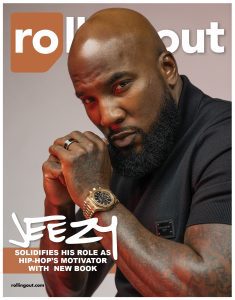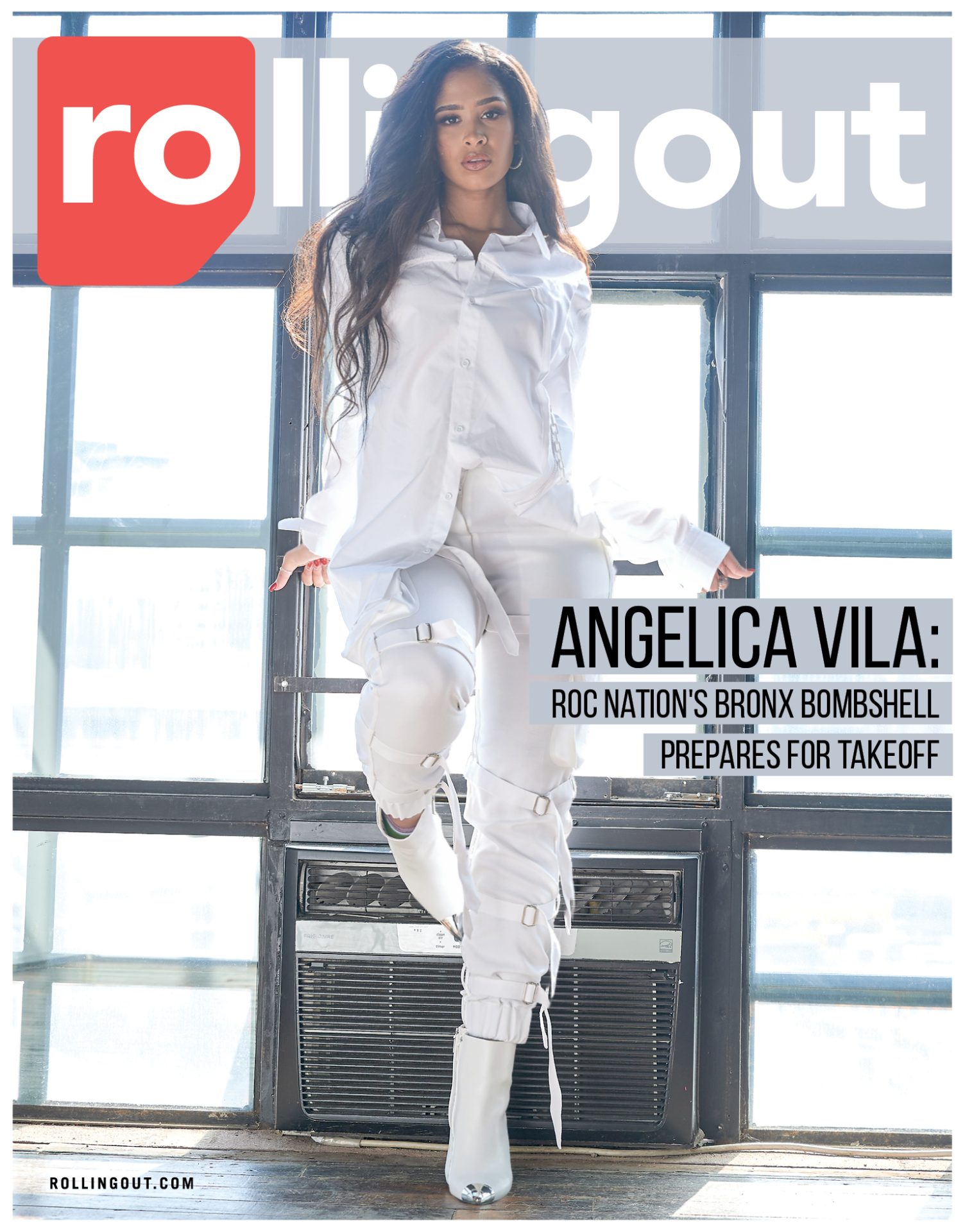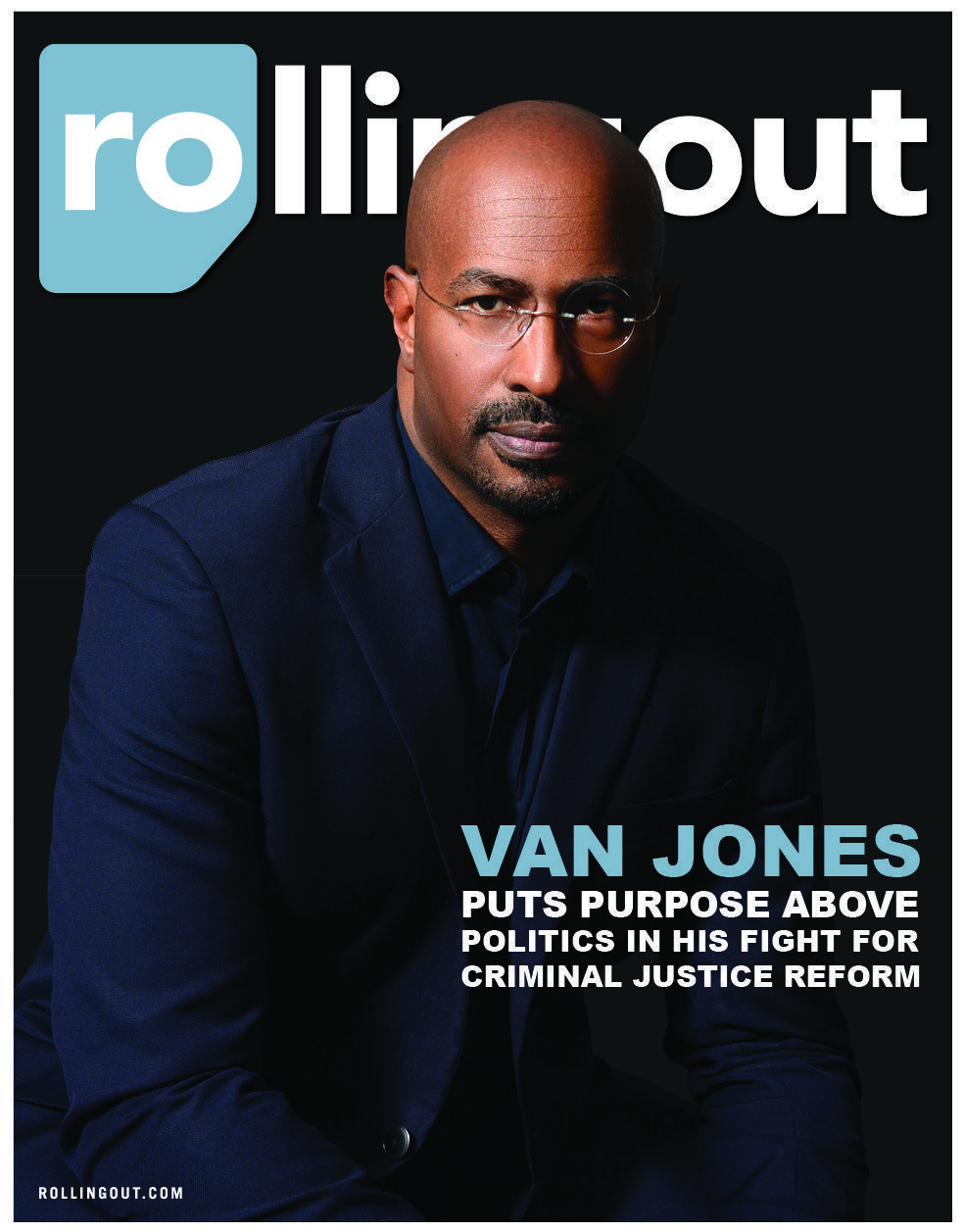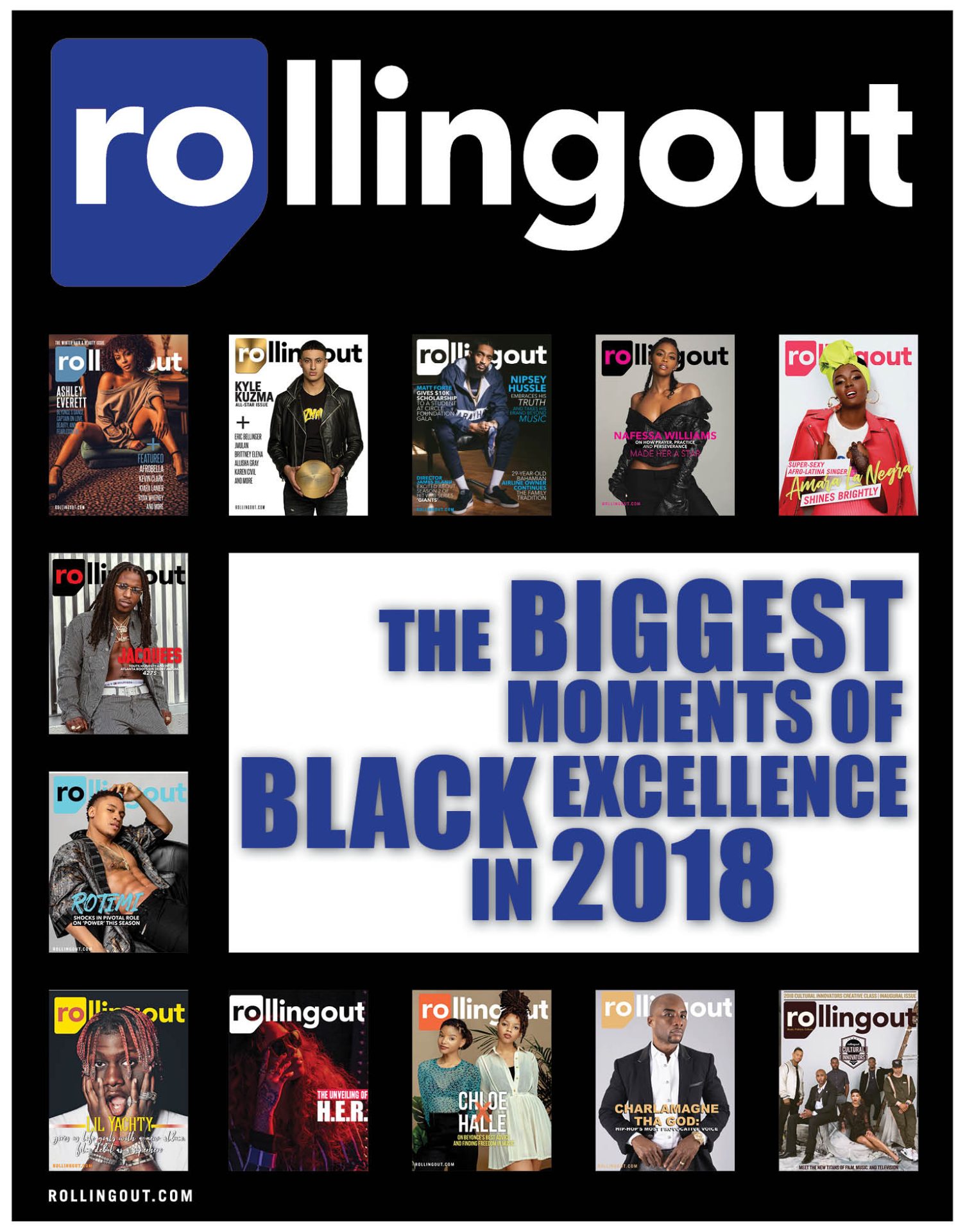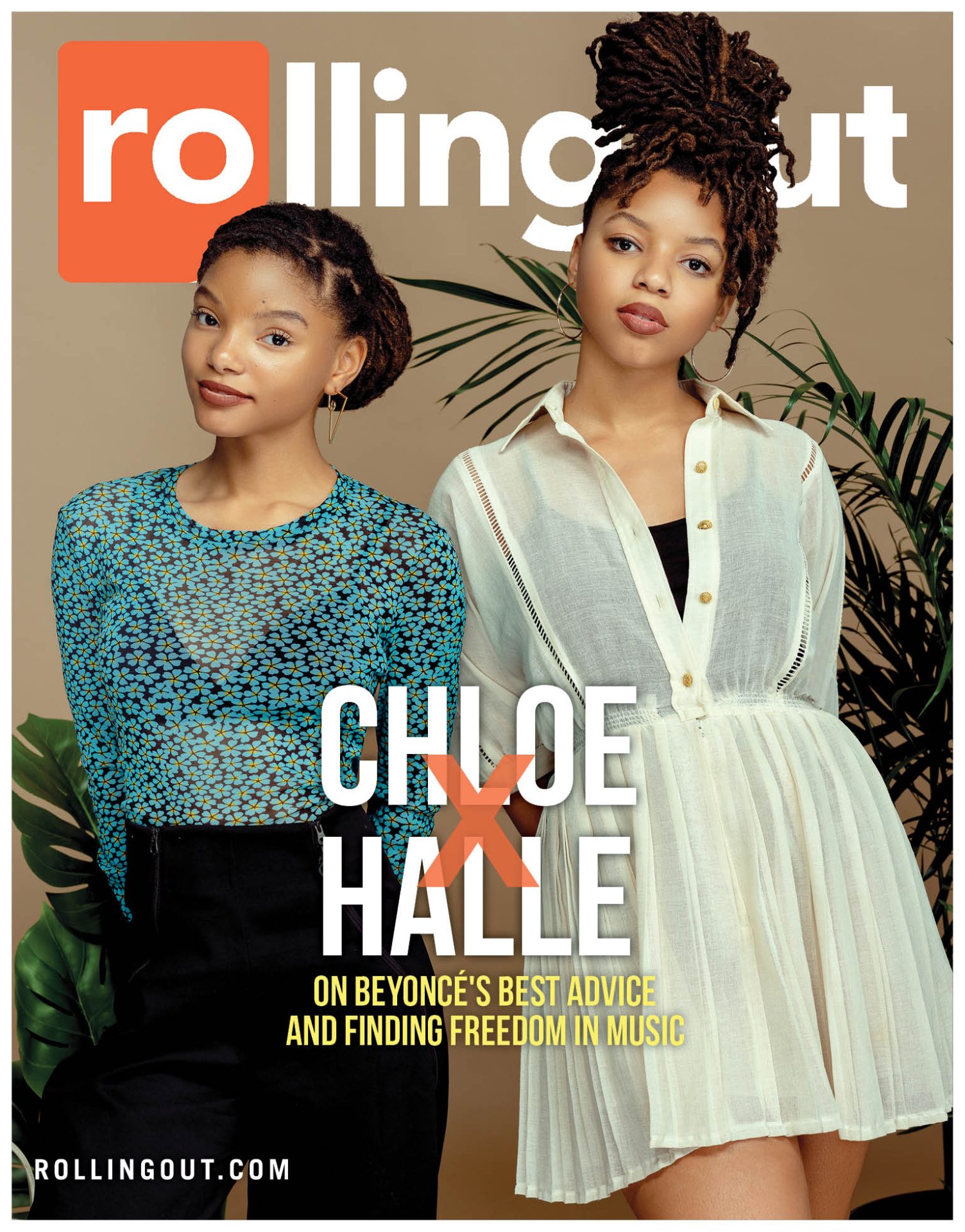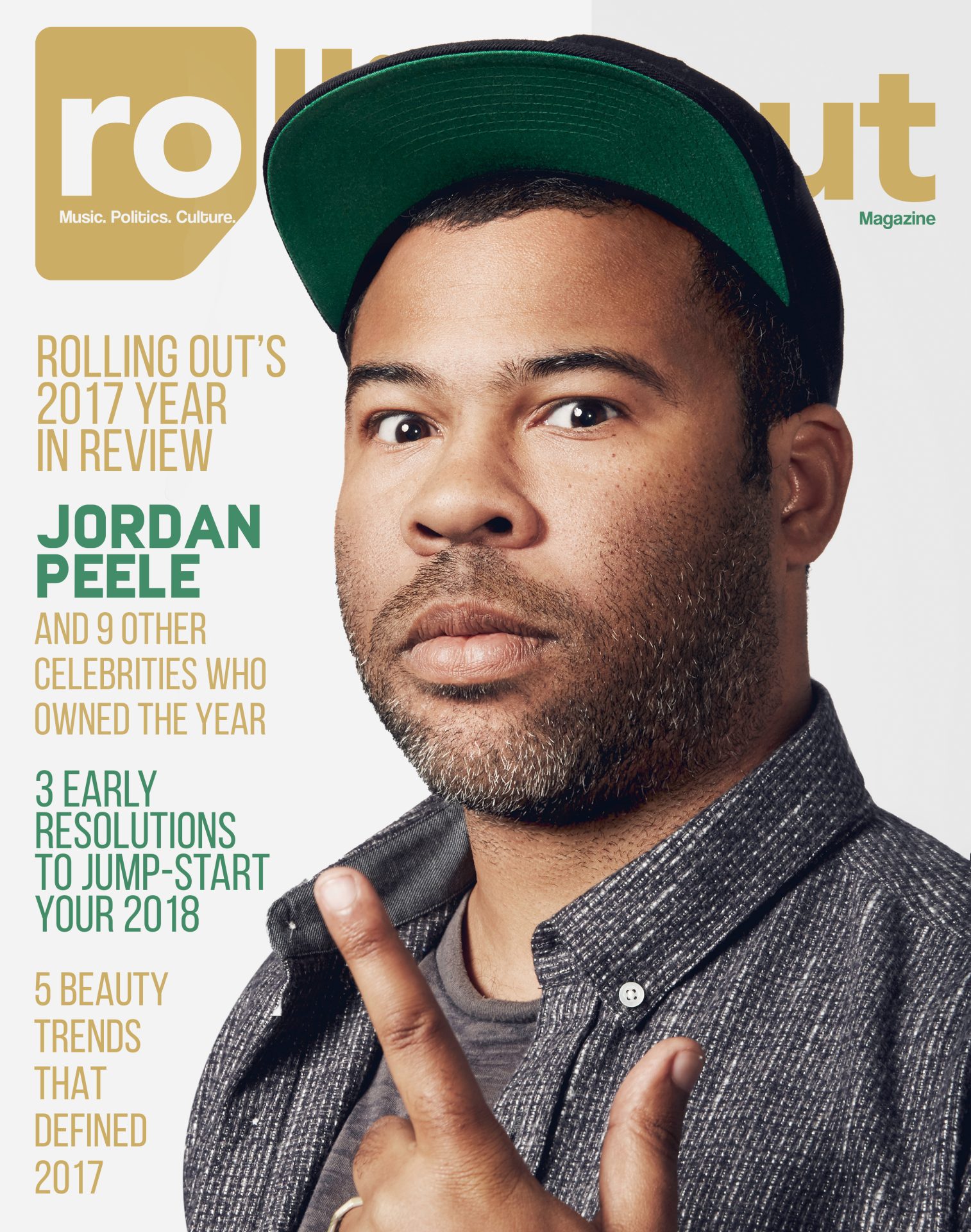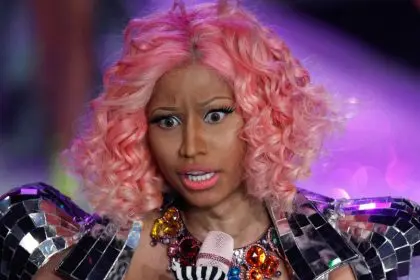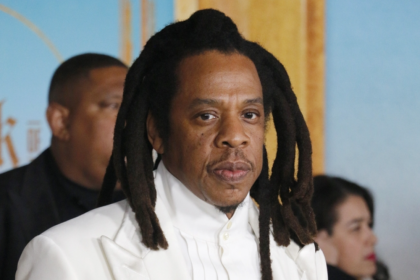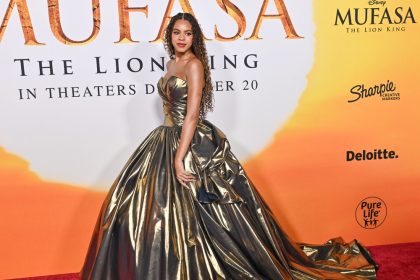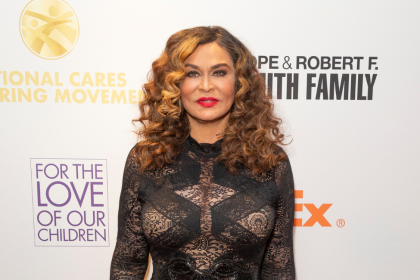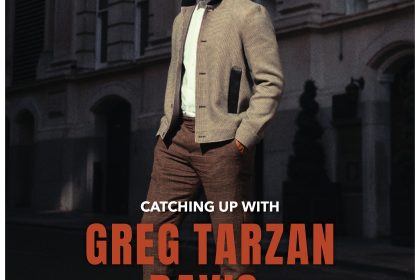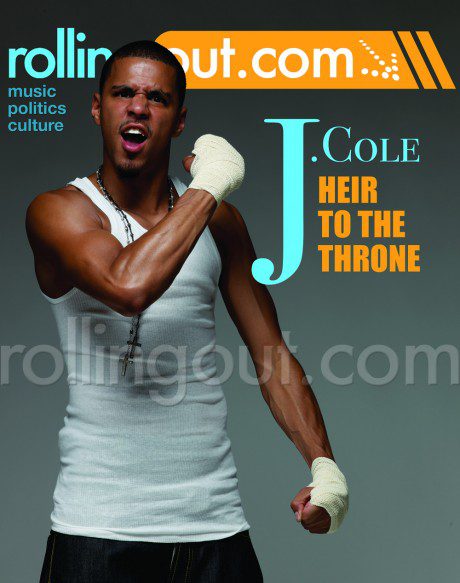
Written by A.R. Shaw
Photos by Keith Major for Steed Media Service
J. Cole looked like a real contender when Keith Major photographed him on a balmy afternoon in New York. With both hands wrapped and steely determination in his eyes, the Fayetteville, N.C., emcee replicated the iconic pose that Muhammad Ali — known at the time as Cassius Clay — displayed on the night he stunned the nation by knocking out Sonny Liston.
Similar to Ali’s epic boxing match against Liston, J. Cole enters hip-hop’s crammed ring of newcomers as a considerable underdog. Despite having Jay-Z in his corner, J. Cole finds himself battling to increase his solid fan base with the release of his debut album, Cole World: The Sideline Story.
Cole hails from a small town that has never produced a prominent hip-hop star. And during an era where most rappers assimilate into sub-cultures that highlight gangsta, social consciousness, drug dealing, backpacker, and skateboarder lifestyles, it’s hard to pigeonhole J. Cole into any subculture of hip-hop.
His strongest selling points are his quick-witted wordplay and ability to rap engaging stories that are vivid enough to serve as preludes to a film script or novel.
J. Cole’s first three mixtapes, The Come Up, The Warm Up and Friday Night Lights, were all exceptional pieces of work that solidified him as a lyricist to be reckoned with.
However, they were only sparring sessions in preparation for the ultimate challenge of releasing an official hit album. Jay-Z and the entire Roc Nation family are banking on J. Cole to prove his value in the big fight. But this time, the gloves are coming off.
When it comes to hip-hop on a national scale, Fayetteville is relatively unknown. How did you approach being the first major hip-hop artist to represent that city?
I took pride in being the first artist out of Fayetteville to make it. I made sure that I was shouting out of my city with every chance I got. I knew that there weren’t many people coming to my city looking for rappers, but I never felt that people wouldn’t respect me. I just knew that I had to make people pay attention to.
How did you get into rap without there being a major rapper in your city to inspire you?
I started rapping out of fun. My cousin was rapping and I thought he was cool. But when I got the Can-I-Bus album in 1998, I knew he was rapping on another level. Nas and OutKast were great rappers and it was hard to do what they were doing lyrically, but I was drawn to Canibus’ punchlines. During that time, freestyle battles were big. So I decided to get wittier with my punch lines and wordplay after hearing that album.
You were known for basketball skills before becoming known as a rapper. Was there anything in sports that prepared you for where you are in music?
I tried out for the basketball team as a freshman and I got cut. My cousin played ball and told me to become the team’s manager, get in good with the coach, and learn the system. So I swallowed my pride and I became the team’s manager. I figured that I would make the team the next year just because I was the team’s manager. But I got to cut the very next year. The average person would have [given] up after getting cut twice. The next summer before my junior year, I played one-on-one with the best player on the team and worked hard on my game. I finally made the team and I was starting my senior year. If it wasn’t for that rejection in basketball, I’m not sure if I would have had what it takes to make it in rap.
That story sounds like your first encounter with Jay-Z. What led to that moment?
I graduated from St. John’s University. At the time, all of my friends got nine-to-five jobs and were making $30,000 to 40,000 per year. I was working at a newspaper in Queens making $8 per hour at a part-time job so that I could still do music at night. I heard that Jay-Z was recording the American Gangster album. That same night, I made two beats and I thought it would be perfect for Jay-Z. I went to the studio where Jay-Z was recording and I waited outside for three hours. His Phantom finally pulled up. I was super timid and shy. I had the CD in my hand and I tried to hand it to Jay-Z. He looked at it and said, ‘What is this? I don’t want that. Give it to one of those other guys.’ It was crushing. That was another moment. But I snapped back to reality. I knew after that, I had to go harder. That type of rejection fuels me. I believe that greatness is fueled by rejection. Michael Jordan was cut from his high school basketball team; Jay-Z had trouble getting a record deal before Reasonable Doubt, and no one wanted to sign Kanye West as a rapper.
How did the second meeting with Jay-Z come about?
One year later, Jay-Z heard a song through Mark Pitts. Jay called me for a meeting. It was a three-hour meeting and I played my music [for] him. We talked about President Obama and other things. Five weeks later, he offered me a record deal.
Are there any drawbacks or pressure to being signed to an artist of Jay-Z’s caliber?
There aren’t any drawbacks. It’s great to have someone who has been the most successful rapper in history – to be able to have that guidance is all the advantage I need. Being associated with that name will make people pay attention. I love to get inside perspective from Jay-Z and guys like No I.D.
Beyond music, your name was mentioned by gossip bloggers who reported that you and Rihanna had a sex tape. How did you react when you heard about it?
Gossip is foreign to me. By nature, I don’t like gossip. I never was on the gossip sites. Now being on the other side, it’s annoying. A lot of people don’t know the difference between gossip and reality. They may think that you have a sex tape with Rihanna, or [that] you’re having sex with Solange because of what someone made up. But I guess it’s just something that comes with the territory.
How does Cole World: The Sideline Story reflect who you are as a person?
This album speaks to the type of artist I want to be. I think the album will provide thought-provoking lyrics and heartfelt stories. I want to take listeners on a ride. It shows the type of balance that I want to have as an artist. I want to be at the top of the list when it comes to rap. I want the respect of hip-hop fans and connoisseurs. I want to be on everybody’s list.

